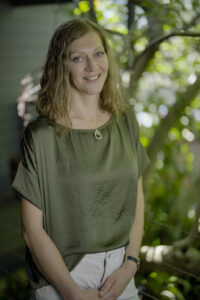Joanna McCormick
Masters Graduate – Registered Counsellor

Find Meaning and Hope
Together we can work on the issue that stop you from living your full authentic life. I’ll support you through deep inquiry with practical strategies you can apply straight away. We will work on getting you back in alignment with your true self and toward a more fulfilling and meaningful life.
I look forward to supporting you in asking the big questions and finding more meaning in your life.
I offer a holistic and integrative approach, that takes into account your mind, body and spirit as elements in wellbeing. My work is informed by my studies in Philosophy, Peace & Conflict and Counselling.
Since an early age I have been asking myself questions about the meaning and purpose of life and have always been interested in the workings of the mind.
Philosophy
When applying for university, I considered studying psychology but decided that philosophy could give me a deeper and broader understanding of human nature and human existence. And, let’s be honest, for an 18-year old, studying philosophy must have sounded way more cool than the much more structured and practical field of psychology.
My background in philosophy, and especially my early interest in existentialism, gives me a good basis of understanding what my counselling clients face when existential questions come up in their lives:
Big Questions
“What’s the meaning and purpose of life? Who am I? What is my place in the world?” These questions emerge – especially around the time of a significant loss or major life changes.
Existential questions come up when we face our own mortality, significant loss, grief, and emotional pains that are beyond our comprehension. Big questions can also occur when we are in a major transition and facing many unknowns, such as retirement, getting diagnosed with a serious illness or being uprooted from our home land.
I have gained rich experience from work on the helpline for people experiencing grief and loss. I bring my compassionate listening skills to counselling, as well as offer practical tools to help clients navigate with more skill through different stages of their grief.
Most people, at some stage, experience a change that shakes up their reality and their quality of life gets impacted by how they deal with that situation. Different strategies could include denial, escapism, reckless and risky behaviour. They can also include facing those unknown, uncomfortable and often painful feelings, sensations and thoughts that start coming to the surface.
While we don’t usually invite unsettling and disturbing events into our lives, they are a part of most people’s life story and this is often a time when inner work begins.
It is my belief that it’s how we approach this challenging time that can become a unique and precious opportunity to discover the deeper workings of life, an opportunity to find strength and resilience, and perhaps even redefine the meaning and purpose of our life.
Peace and Conflict
Philosophy studies are predominantly theoretical, and I wanted to apply some of the philosophical ideas I learned into everyday life. This led me to enrol in my second Masters degree, Peace and Conflict Studies. This course offered a practical and pragmatic approach to understanding the nature and dynamics of a conflict.
We learned about conflict mediation and conflict resolution, with a strong focus on outcomes that are not only peaceful but also fair, in order to achieve a more stable and long-lasting state of peace with justice.
I worked for causes that support equality, social justice and fulfilling basic human needs such as access to clean water or education for all. However, over time it became more apparent to me that to work for peace I don’t need to “fight” for social justice or go on a peacekeeping mission because in reality, no matter what is going on in the outside world, we won’t truly feel at peace until we find it within ourselves.
Often before we find inner peace we must deal with calming down our day-to-day stress responses and feelings of overwhelm.
When supporting clients who experience anxiety, I incorporate strategies and techniques that help relax and strengthen their nervous system. These are tools that can be adapted and used outside of the session time. Finding what works best and how to apply it on a daily basis can sometimes be a path of trial and error. Having a helping hand can provide a boost of motivation and encouragement, increasing the person’s chances of success.
Through deep listening and holding space, in a safe and confidential environment, where there is no rush and no judgement, there is time to delve deeper, become more self-aware, see things from a different perspective and start the process of untangling our knots.
Existential Counselling
Counselling, especially existential counselling, allows space to start making peace with ourselves as we are free to approach the fundamental questions about the meaning and purpose of life, and about finding our role and place in it.
For me becoming a counsellor was a slow but consistent evolution and today, I am truly honoured if I can assist a client on a path of self-discovery and perhaps even self-actualisation – the fulfilment of the innate desire to reach our full potential as human beings.
At the same time, it is very clear to me that this is the journey that we – the client and I – take together, or as the spiritual teacher Ram Dass said “we are all just walking each other home”.
Qualifications
- Grief and Loss Training, Griefline Services
- Diploma Counselling, Northern Beaches and Mosman College
- Master Peace and Conflict Studies, University of Sydney
- Master Philosophy, Jagiellonian University, Poland
- Erasmus Program Participant, University of Nijmegan, Netherlands
